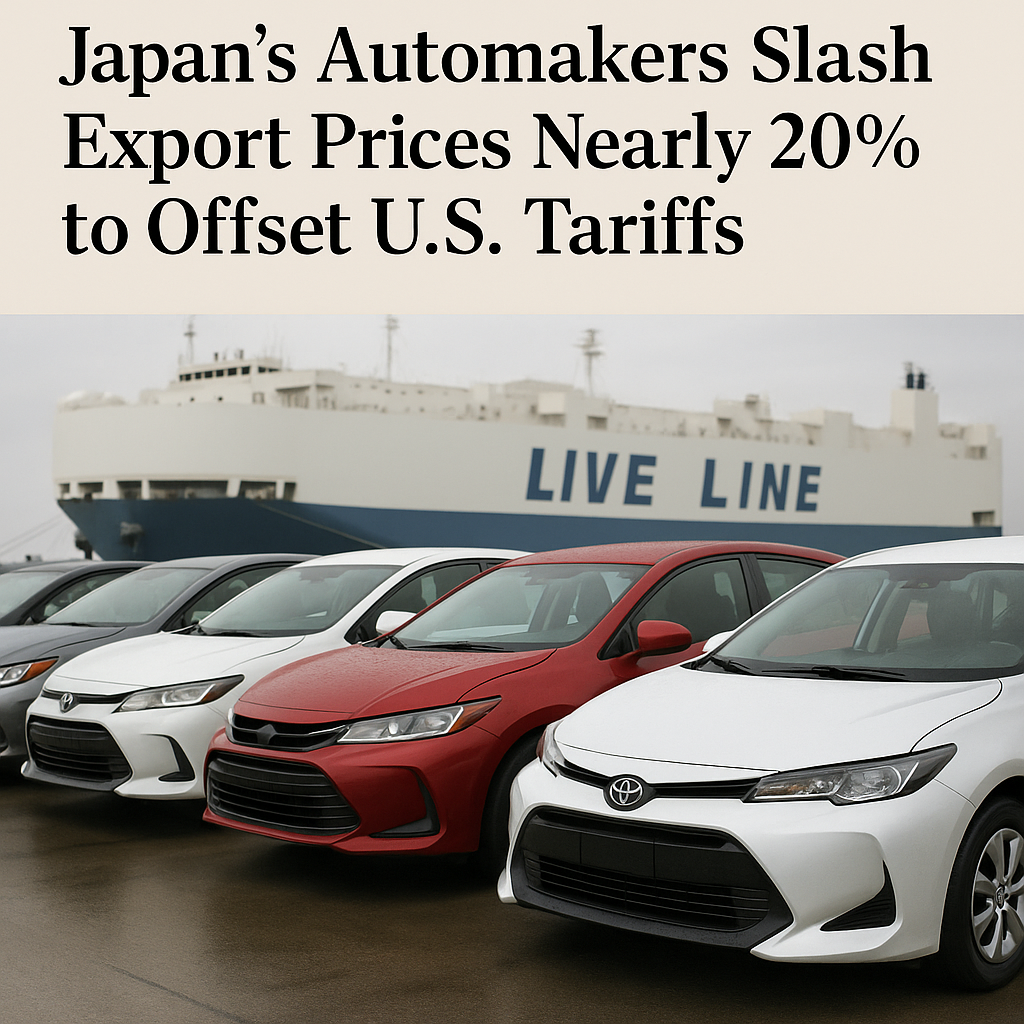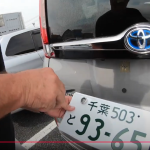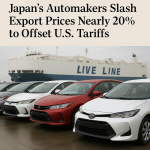By Graeme Cooke, Editor at Auto Trader Imports
Tokyo, Japan – August 24, 2025
A Price War With Politics at the Wheel
Japanese automakers are handing out discounts that look more like summer sales than trade policy. Major brands including Toyota, Nissan, and Honda have announced export price cuts of nearly 20 percent, aimed squarely at offsetting U.S. tariffs that have been biting into margins since early this year.
While Washington’s revised trade deal was meant to ease the pain, most Japanese companies say the relief has been slower than a Tokyo traffic jam. Instead of waiting for tariff talks to untangle, automakers are slashing sticker prices on cars headed overseas, effectively taking the hit themselves to preserve U.S. market share.
Consumers Smile, CFOs Frown
For U.S. buyers, the news is nothing short of delightful. A car that might have rolled off the boat at $32,000 could now be available closer to $26,000. That’s the kind of math that makes wallets open quickly.
“It’s the most aggressive export pricing move we’ve seen in years,” said one Yokohama-based analyst. “Japanese companies are making a calculated sacrifice—they’ll absorb short-term pain to protect long-term loyalty.”
Inside boardrooms, however, smiles are thinner. Lower margins mean tougher decisions. Companies will need to squeeze suppliers, cut costs, or rely on efficiency gains to keep balance sheets in the black.
Currency Winds and Global Rivals
The yen’s weakness in global markets has helped soften the blow, making Japanese exports cheaper in dollar terms. But the competition isn’t idling. Hyundai, Volkswagen, and Tesla are sharpening their pencils, ready to keep pace in a world where tariffs have become just another factor in the cost race.
Meanwhile, the global shift toward electric vehicles adds another layer of complexity. Price wars that were once about technology and innovation are now increasingly about geopolitics and survival.
The Road Ahead
If tariffs drag on into 2026, industry insiders expect Japanese automakers to expand North American production to sidestep the fees. That shift could redraw global supply chains and further blur the lines between “made in Japan” and “made for America.”
Until then, U.S. car buyers may enjoy a rare treat: brand-new Japanese cars at near-bargain prices. As one Tokyo trade expert joked, “It’s like a coupon clipped straight out of a tariff war. Don’t expect it to last forever.”
Author: Graeme Cooke, Editor at Auto Trader Imports, Tokyo Japan
Date: August 24, 2025












